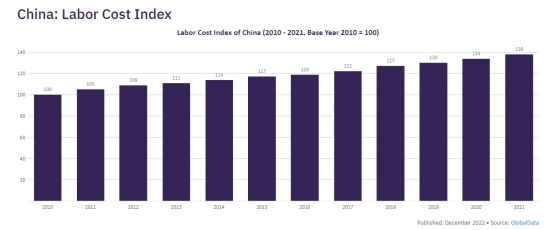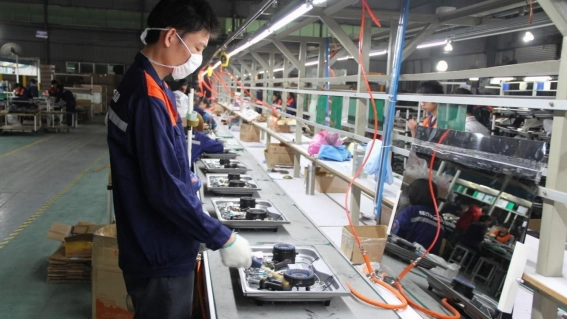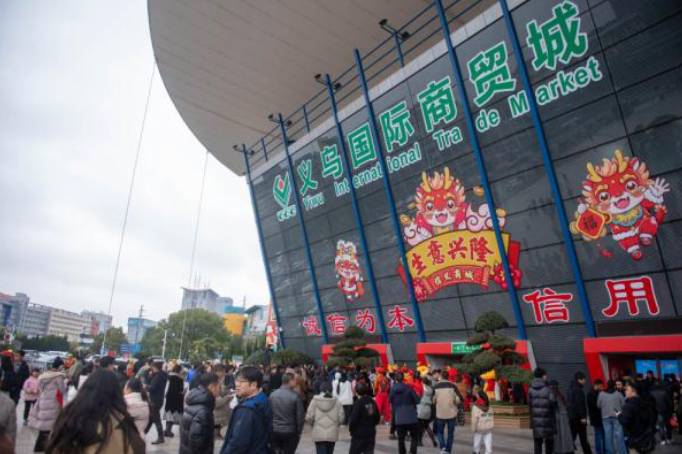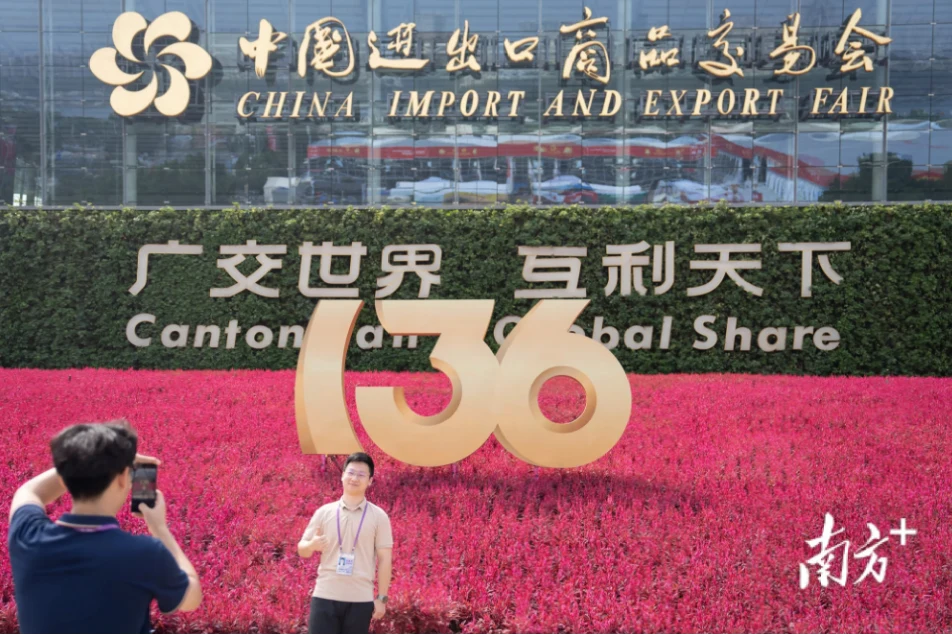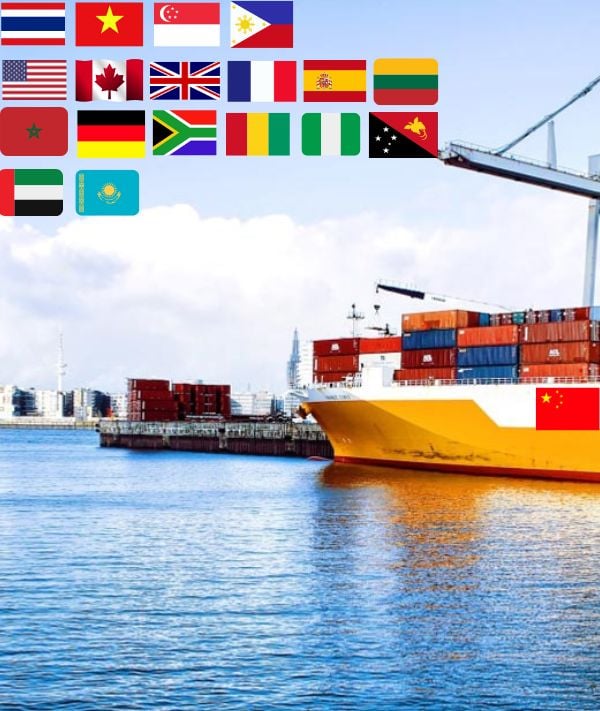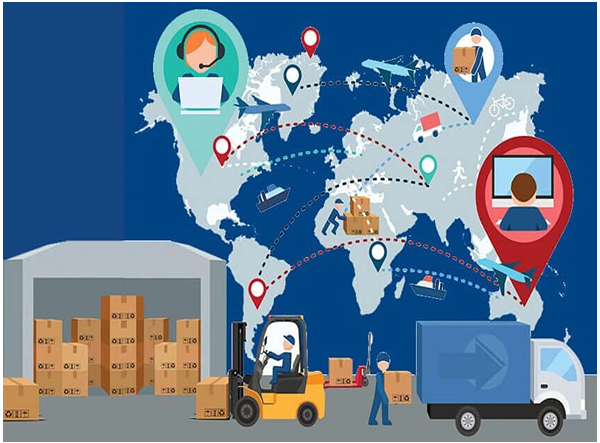
Chinese industries are undergoing a shift, and some people are starting to worry about whether China sourcing will be affected.
According to customs statistics, the total value of China’s goods trade import and export reached 20.1 trillion yuan in the first half of 2023, an increase of 2.1% compared to the previous year. Among them, exports amounted to 11.46 trillion yuan, with a year-on-year growth of 3.7%.
The high export rate of China can be attributed to its low manufacturing costs. This is why many businesses prefer to source their products from China. If your product procurement is done right, you can obtain high-quality products at extremely low unit prices, thereby increasing your profit margins. What’s more, you can reduce costs and ensure a year-round uninterrupted supply of products. Unfortunately, there are many rumors and misinformation circulating. For example, some claim that it’s challenging to find high-quality products manufactured in China, and China is no longer the optimal destination for sourcing goods. However, through practical experience, you will discover that procuring goods from China remains your best choice.
Has China’s industrial relocation and rising labor costs had an impact on China sourcing?
China’s industrial relocation and rising labor costs have been hot topics. While these factors may have some impact on the China sourcing industry, China still remains a crucial procurement destination.
China’s industrial relocation is a complex topic because the Chinese government has been actively promoting industrial upgrading and technological innovation. While some manufacturing is shifting to lower labor cost regions, China still maintains a competitive advantage in high-value-added industries and high-end manufacturing. This means that sourcing from China remains an attractive option for buyers looking for high-quality products.
The increase in labor costs is also a consideration. Although labor costs in China are rising, they are still relatively low, especially compared to some developed countries. Additionally, China’s labor market is vast, providing abundant labor resources that cater to the needs of different industries.
Why choose to source goods from China?
1. Vast Supplier Network
One of the primary reasons to import from China is its extensive supplier base. In fact, China boasts one of the most diverse supplier bases in the world. From textiles, apparel, electronics, to consumer goods, you can find a wide variety of supplier companies capable of producing almost any type of product.
China has different industry clusters composed of large enterprises and companies distributed across various geographical locations. For instance, Yiwu in Zhejiang Province may be the world’s largest small commodities market. Therefore, you can find a reliable manufacturing company to customize almost any type of small commodity.
Similarly, Tongxiang in Zhejiang Province is a manufacturing hub for modular kitchenware and household products. If you are looking for OEM manufacturing of kitchen sinks or metal tools, you can find suitable suppliers in this region.
Likewise, you can find a supplier base for cosmetics in Guangzhou, hardware in Yongkang, and digital and electronic products in Shenzhen. Each cluster is composed of subsets of supporting companies.
These subsets offer services like packaging, raw materials, transportation, and quality control. In other words, you can get a one-stop solution for all your OEM needs.
2. Low Labor Costs
One of the most common answers to the question “Why is manufacturing in China cheaper?” is the relatively low labor costs.
Labor costs account for a significant portion of product costs. Therefore, places with abundant cheap labor supply can often produce inexpensive products because lower labor costs allow them to set competitive low prices. This is a key reason why China can offer products cheaper than more labor-expensive developed economies.
China is one of the most populous countries in the world, making it easier to find a large pool of skilled and unskilled labor locally. The abundant local workforce enables Chinese manufacturing companies to set lower manufacturing costs.
You can also take advantage of inexpensive Chinese labor to import affordable products for your business. You can offer lower prices while maintaining a comfortable profit margin for yourself.
Despite the low prices, Chinese labor is highly valuable because the country has a high level of industrialization and decades of experience in manufacturing various products. Thus, many Chinese workers are experienced, skilled, and knowledgeable in their industries. Skill levels, training, and experience have a significant impact on product quality and defect rates. So, when you source goods from China, you can benefit from both lower labor costs and relatively higher skill levels.
3. Excellent Product Quality
There is a common misconception that Chinese products are not durable, and some refer to them as “throwaway” low-quality products. However, this is not the case. If it were true, many multinational companies would not outsource most or all of their production to China.
Chinese manufacturing does not necessarily mean poor product quality. China’s manufacturing industry now has decades of experience in producing a wide range of products. Different provinces in China are known for their respective specialties. For example, Shenzhen is renowned for its leading position in the electronics manufacturing industry and quality.
In fact, product quality largely depends on the price you are willing to pay. If you offer a very low price, you will undoubtedly get what you pay for. Chinese suppliers, after all, are businesses that need to make a profit to continue operating. For example, if you insist on extremely low prices, suppliers may have to cut corners and use cheaper and less reliable materials.
China’s industry has a long tradition of working with American and European companies. They also have a history of collaboration with companies from other developed countries around the world. As a result, they can now adhere to strict product standards. Therefore, products manufactured in China are often of better quality than those from other major Asian economies like India.
4. High Productivity
China’s manufacturing infrastructure is highly robust and capable of supporting large-scale production. This is a significant advantage for businesses that require a large quantity of goods.
For example, having a massive workforce and diverse manufacturing industries allows China to mass-produce various goods, lowering production costs and increasing efficiency.
Manufacturers are highly specialized in various fields, accumulating rich experience and expertise, enabling them to provide high-quality products, even for custom production.
A complex and powerful supply chain system efficiently manages the flow of raw materials and finished products, reducing delivery times and costs. Government investments in infrastructure further enhance production efficiency, making China one of the global manufacturing hubs.
Abundant supplies of raw materials help lower production costs and ensure production continuity. This is why China’s production capacity for goods plays a crucial role in the global manufacturing industry and attracts many international companies to establish their production bases in China to leverage its potential.
5. Prototype Design
China has a long tradition of excellence in product prototype design and is one of the leaders in this field. In China, you can find companies willing to provide quality and functional combinations for your customized products through rapid prototype design.
Chinese companies have extensive expertise in CNC machining, and they are increasingly proficient in 3D printing, which enhances the speed and efficiency of rapid prototype manufacturing. In fact, China is a major producer of CNC and 3D printing machines.
However, it’s important to note that not all manufacturers are willing to engage in prototype design, as it is a challenging task that requires a significant amount of time, effort, and resources.
6. Low Risk
Sourcing goods from China comes with relatively low risks, attributed to a stable political environment, legal and contract protections, supply chain stability, rich manufacturing experience, government support, supplier diversity, and market opportunities, among other factors.
The Chinese government has strengthened the legal framework for protecting intellectual property rights and contract enforcement, which helps protect the interests of buyers. Additionally, China’s extensive supply chain network and rich manufacturing experience reduce the risks of supply instability and quality issues.
China, as the world’s largest procurement factory, offers numerous advantages, including a vast supplier base, low labor costs, high-quality products, strong production capacity, prototype design capabilities, high productivity, and lower risk factors. Despite changes in China’s industrial structure and labor market, it remains one of the primary destinations for global procurement.
When considering sourcing goods from China, buyers should choose suitable suppliers based on their specific needs and market positioning. Additionally, it’s essential to closely monitor changes in Chinese regulations and policies to ensure that your procurement activities are legal and compliant. By understanding the benefits of hiring a China sourcing agent, you can select the best China sourcing agent for collaboration. Even if you are new to the field of China sourcing, you can maximize your business profits.
Share This Story, Choose Your Platform!
We connect you with reliable factories, get the best quotes, deliver straight to your door.


